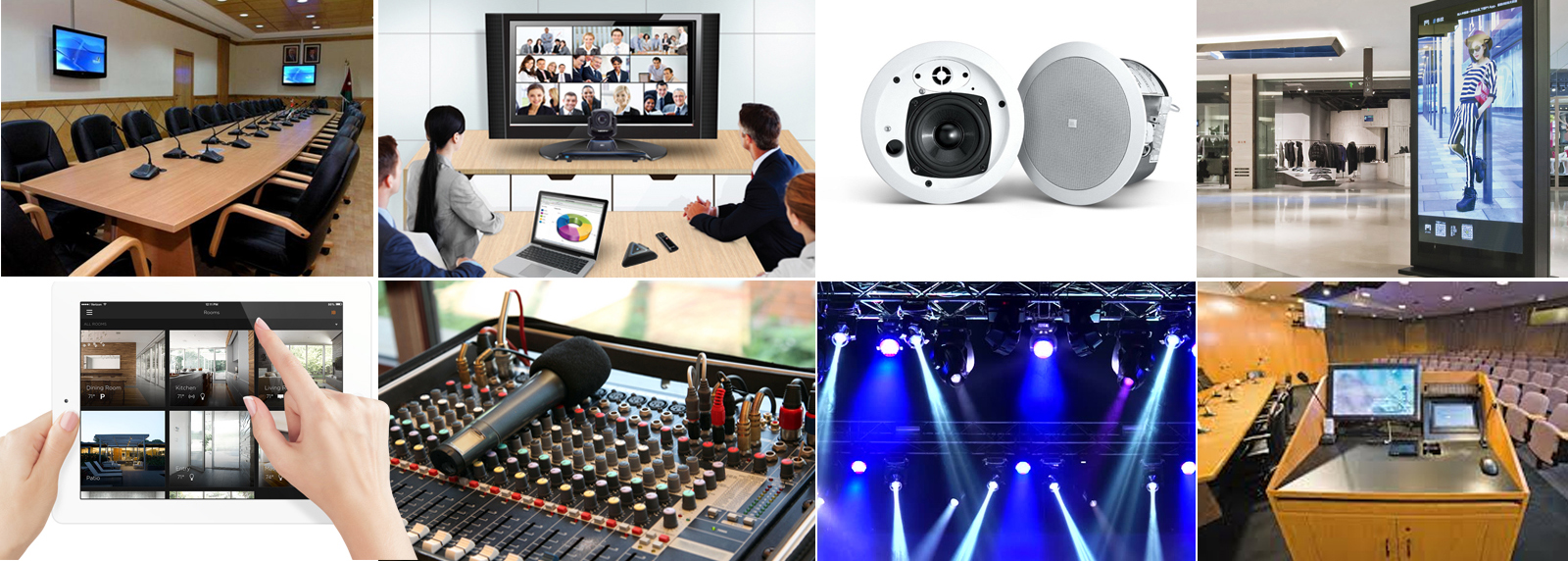Discover Exceptional Audio Visual Services for Your Future Event
Discover Exceptional Audio Visual Services for Your Future Event
Blog Article
Recognizing the Basics of Event Production
The details of event production call for an extensive understanding of a number of fundamental components, consisting of the establishment of clear objectives, precise budgeting, and calculated place selection. As we check out these critical elements, one should think about just how they interrelate and impact the general success of an occasion.
Defining Event Objectives
Defining event purposes is an essential action in the event manufacturing procedure, functioning as the structure whereupon all preparation and execution are built. Clear purposes offer instructions, making sure that all stakeholders understand the event's objective and preferred results. These objectives should specify, measurable, attainable, pertinent, and time-bound (WISE), which permits efficient examination of success post-event.
Determining the target audience is crucial in forming the objectives. Understanding their demographics, passions, and expectations makes it possible for occasion coordinators to customize web content and experiences that resonate with participants. In addition, straightening the goals with wider organizational goals fosters assistance from leadership and stakeholders, ensuring that the event adds to the general objective.
Involvement and communication are essential elements to consider when defining purposes, as they considerably influence guest contentment. Last but not least, it is important to interact these purposes clearly to all group participants associated with the planning procedure. This quality improves partnership, focusing efforts on accomplishing a linked vision. By establishing distinct purposes, event producers can create a structured structure that guides decision-making and source allowance, inevitably resulting in an effective event.
Budgeting for Success
Effective budgeting is important for the successful manufacturing of any kind of occasion, as it offers a financial structure that sustains all intending activities. A well-structured budget enables event coordinators to assign resources efficiently, guaranteeing that every element of the occasion is sufficiently funded while minimizing the risk of overspending.
To produce an effective budget, begin by determining all possible costs, such as venue costs, food catering, entertainment, tools rentals, and advertising. It is critical to classify these expenses into fixed and variable prices, which aids in understanding which components are non-negotiable and which can be adjusted based on financial constraints.
Furthermore, income resources should be recognized early in the budgeting process. This consists of ticket sales, sponsorships, and goods sales. By estimating prospective income, planners can straighten their expenditures accordingly, ensuring that the event stays monetarily sensible.
Regular tracking of the budget throughout the preparation process is vital. This allows for adjustments to be made as needed, keeping economic self-control. Eventually, an effective spending plan not just safeguards against unexpected costs yet likewise enhances the overall top quality and experience of the event, ensuring its success.
Venue Selection Strategies
Selecting the best venue is an important part of successful occasion production, as it establishes the stage for the overall experience. The very first step in venue selection is to define the event's goals and audience, which will direct the option of place and ability. Factors to consider such as availability, atmosphere, and offered services should straighten with the occasion's motif and purpose.
Next, review the venue's ability to fit your expected number of attendees while making sure comfort and interaction. It is necessary to visit possible venues in person to evaluate their format, centers, and general allure. Additionally, examine logistical aspects including auto parking availability, public transport gain access to, and any kind of limitations that might impact the occasion.
Budget constraints are additionally extremely important; ensure that the place fits within monetary criteria while offering required solutions. Contract arrangements should be approached with diligence, looking for transparency pertaining to additional expenses, cancellation policies, and obligation insurance coverage.
Last but not least, consider the venue's track record and past More about the author performance for comparable occasions (Audio Visual Services). Involving with previous customers can provide beneficial understandings right into the venue's reliability and service top quality, inevitably assisting in making an educated decision

Technical Manufacturing Elements
Technical production components work as the foundation of any type of event, making sure that all sound, visual, and lighting components work sympathetically to develop an immersive experience. These components include a range of modern technologies and techniques targeted at providing content successfully and engagingly.
Audio systems are navigate to these guys essential, involving microphones, Website speakers, and blending equipment to make sure clear sound shipment. High-quality sound is necessary for keeping target market interaction, specifically in larger venues. Visual elements include forecast systems, LED screens, and video clip feeds, which improve the aesthetic narrative of the event and sustain the overall style.
Illumination plays an essential role in directing and establishing the mood audience emphasis. A properly designed illumination plan integrates different methods, such as limelights, ambient illumination, and shade laundries, to create dynamic environments appropriate for different sections of the event.
Furthermore, technical production components call for thorough planning and assimilation. This includes pre-event audio checks, video clip practice sessions, and lighting examinations to attend to prospective challenges before the event starts. Ultimately, a cohesive technological manufacturing technique not only boosts the event experience however additionally mirrors the professionalism and trust and focus to detail that participants anticipate.

Group Coordination and Duties
Successful event manufacturing hinges on seamless group control and plainly defined roles among all individuals. For an event to run smoothly, each staff member need to recognize their responsibilities and how they add to the overall vision. This starts with establishing a thorough business structure that marks duties such as event manager, logistics planner, technological supervisor, and marketing expert. Each function brings particular tasks that need to be executed in conjunction with one another.
Efficient interaction is vital in this collaborative atmosphere. Audio Visual Services. Normal conferences and updates make certain all group participants are aligned and can adjust to any type of changes or challenges that occur. Using task management devices can promote this interaction, permitting real-time updates and job tracking
In addition, cultivating a culture of team effort is necessary. Encouraging partnership among varied capability not just boosts problem-solving but also promotes a positive functioning atmosphere. When staff member really feel valued and empowered, their performance rises, eventually bring about a more effective occasion.
Verdict
Finally, an extensive understanding of event production encompasses specifying clear purposes, developing a durable spending plan, choosing a proper venue, handling technical production elements, and ensuring efficient group coordination. Each component plays an important duty in the overall success of an event. By diligently resolving these basics, event planners can improve the participant experience, maximize resources, and accomplish preferred results, consequently adding to the occasion's general effectiveness and impact within the designated audience.
The intricacies of event production require a thorough understanding of several fundamental aspects, consisting of the establishment of clear purposes, precise budgeting, and tactical place selection.Specifying occasion goals is a vital action in the occasion production process, offering as the foundation upon which all planning and execution are constructed. By establishing distinct goals, occasion manufacturers can produce an organized framework that guides decision-making and resource allowance, ultimately leading to a successful event.
In final thought, a comprehensive understanding of event production incorporates specifying clear purposes, developing a robust budget plan, picking an appropriate location, managing technological manufacturing components, and making certain reliable team sychronisation. By carefully dealing with these fundamentals, event coordinators can boost the attendee experience, maximize sources, and accomplish wanted end results, thus adding to the occasion's general effectiveness and influence within the designated target market.
Report this page